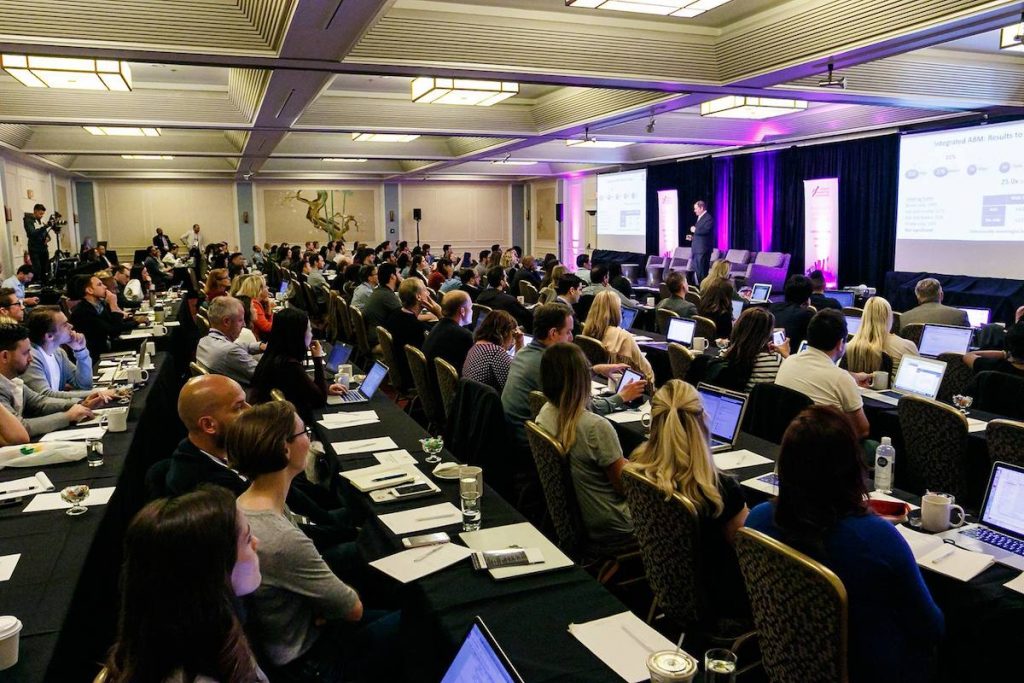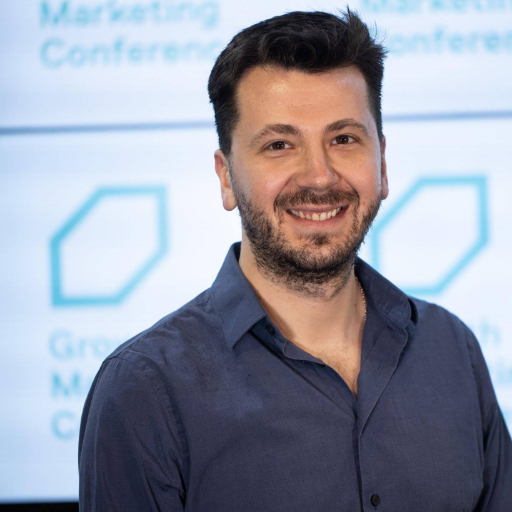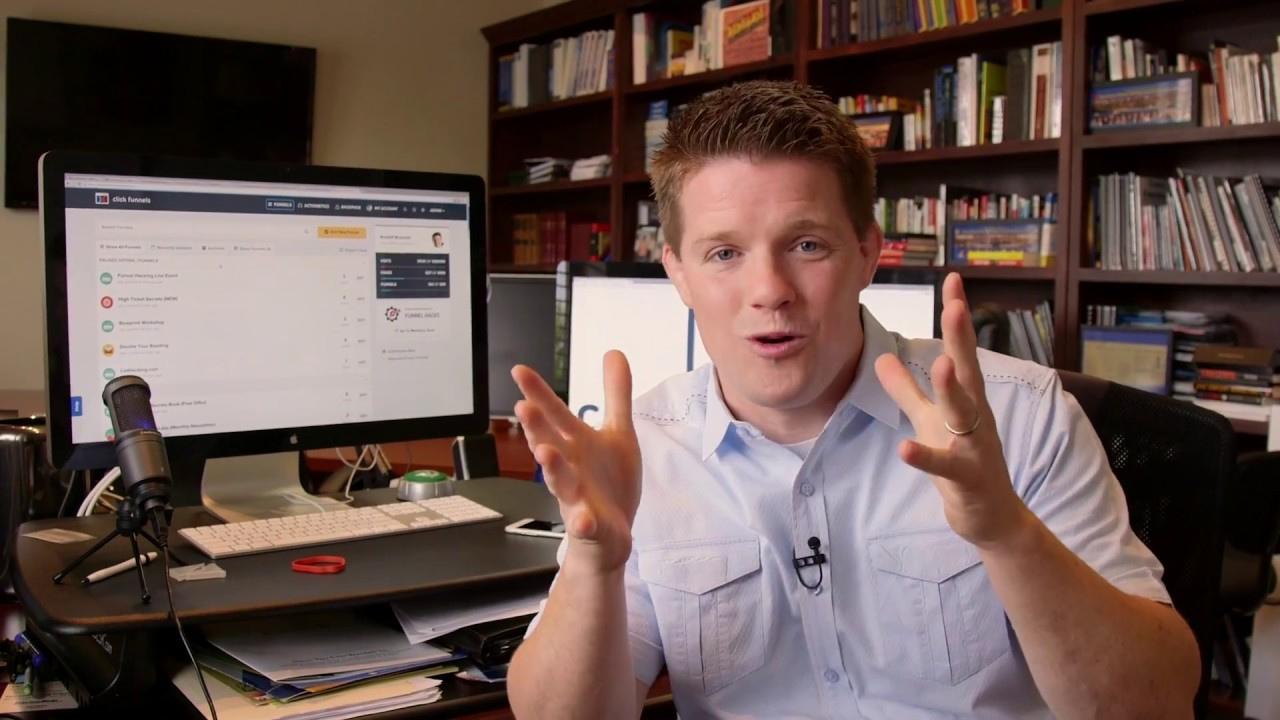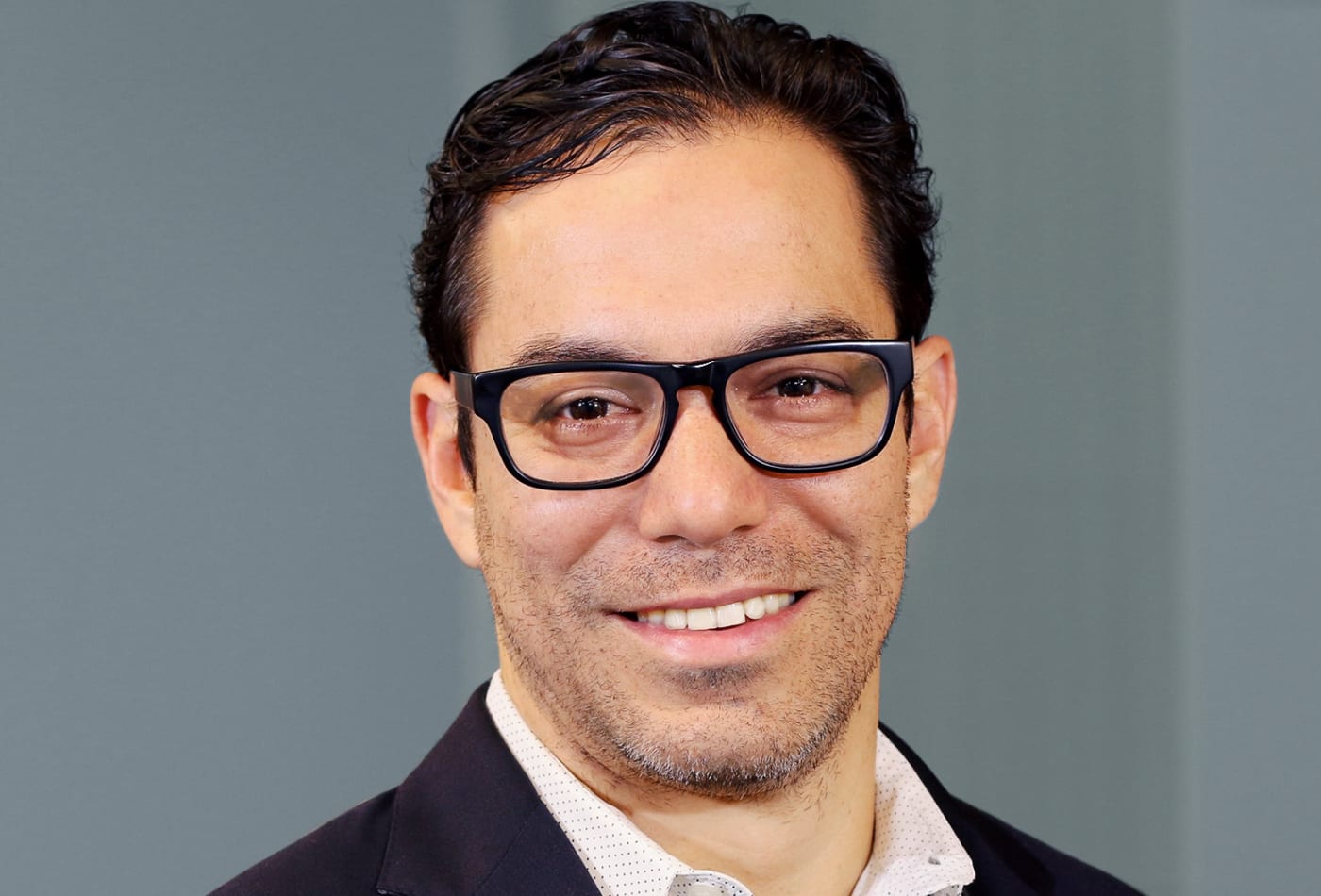-
It took 5 years for CEO Vasil Azarov to ramp up significant sponsorship, which accounts for 50% revenue in 2020
-
Strategic ticket giveaways, competitor cross-promotions and community fostering lifeblood of conference marketing
-
Growth Marketing Conference made $1.5 million during 2019 event
The conference space is riddled with tombstones of organizers who failed, only to be dwarfed by a few massive successes like WebSummit. The risk, however, did not defer Vasil Azarov from testing the waters. Initially, he launched a startup marketing community in 2015. He quickly rebranded to Growth Marketing Conference (GMC,) and that’s when the CEO started seeing real growth in his own marketing efforts.
“I personally wouldn’t recommend anyone starting a conference [business] right off the bat,” Azarov laughs. “Unless you’re really passionate about it and you’re really thinking about it long term.” The CEO confesses he would still work around bringing people together and organizing events even if he wasn’t paid. Our host Nathan Latka sat down with Azarov to figure out just how soon he did get paid for his devotion.
It Cost $150,000 to Host the First Conference for 400 People
As it often does, passion for the craft inexplicably shines through the hardships. For GMC CEO, this meant that back in 2015—for his first conference ever—he got 400 people to buy tickets. How? He built a community first.
Azarov started a startup mixer program called StartupSocials which organized little get-togethers for startup founders in New York, London, LA, SF and San Diego on a monthly basis. “That’s how we built our network, that’s how we got to know a lot of people,” the CEO explains.

He also accredits a lot of early success to the word “growth.” Growth hacking and growth marketing are still healthy buzzwords in 2020, and they were emerging around 2015. The positioning alone affected GMC’s early rise dramatically, Azarov says.
The CEO spent $150,000 to host the first conference, and most of that money went to the food and venue rental. He also advises always to try to negotiate with hotels before the event: ask them to give you the venue for free, while you agree to purchase more food. The logic: hotels earn crazy margins on food and beverages, so a compromise like that might make economic sense for both you and them.
GMC Quadruples Attendee Count in 4 Years Via Strategic Ticket Giveaways
The initial GMC attracted 400 attendees, and tickets were $300 a piece. But one of the things an emerging summit needs to do, Azarov emphasizes, is give away tickets for free to gain traction. “It’s always a split between the tickets that you sell for full price, discounted price, early-bird price and [the tickets] you just give away for strategic people who you want to have at the event,” the CEO explains.
Besides the obvious criteria, Azarov chooses to give away tickets specifically for people who wouldn’t otherwise purchase them. He also gives away partial access tickets to his community members—these will get you into the networking room, but maybe not into the conference itself.

In just 4 years, Azarov grew GMC to 1,700 attendees for his San Francisco event in December 2019. Of these, just over 1,000 were full-price ticket buyers. The founder brought in around $1.5 million revenue from the December conference.
Sponsorship deals are the lifeblood in this line of business, and Azarov admits he was horrible at it at first. He did manage to scramble 3 sponsorship deals for his 2015 event, netting $5,000 to $20,000 a piece.
GMC Spends $35,000 on PPC a Year, Heavy on Email, 50% of Revenue from Sponsorships
Currently, GMC employs about 12 people full-time, one of whom is a dedicated manager who tracks and oversees all marketing campaigns. Attribution is really hard in a multi-touch conference space, so GMC is big on dissecting each and every customer journey to figure out what ticks. Azarov spends about $20,000 a year on PPC ads, with a separate $15,000 budget for Facebook ads.
Besides PPC, Azarov is also big on partnerships with peer startup communities. On paper, conferences like Growth Hackers are GMC’s direct competitors. But in reality, the two businesses make for great partners. “One of the things we figured out by survey of our attendees is that some of them simply cannot attempt in December, when we have our main event,” the CEO explains. Cross-promotions between conferences are then by no means detrimental to either business.
Putting down roots is also paramount in the conference business, Azarov says. For example, sponsors will often ask how long has the conference been around for, and judge its value based on that. “Some of them will send a few people to the conference first, to experience the conference, to meet the attendees,” Azarov explains.
2019 was the first year when 50% of GMC’s revenue came from sponsorship deals. Before that, up to 70% of the revenue came purely from ticket sales.
As far as the sponsorship structure is concerned, Azarov says it’s a mixed bag. Some of them are happy to pay cash, while others are looking for more elaborate cross-promotion deals.
GMC Founder and CEO’s 3 Criteria to Qualify Speakers

While marketing is essential, conference organizers cannot underestimate the importance of the product itself. You’ve probably been at a wonderfully organized conference where speakers put you to sleep. To avoid that from happening, Azarov looks for speakers that are both intelligent and great presenters:
- He looks for practitioners. “Sometimes, we would prefer to have a manager on a director level, but sometimes, we prefer someone who’s in the trenches and who can really show actionable stuff.”
- He looks for showmakers. “Some of the smartest people on Earth, unfortunately, cannot clearly communicate the message. I usually ask them to send a video or jump on a quick call, sometimes 15 minutes is enough to understand.”
- He looks for people with recognizable brands. “If they’re not from a recognizable brand but meet the first two criteria, I still add them to the agenda.”











